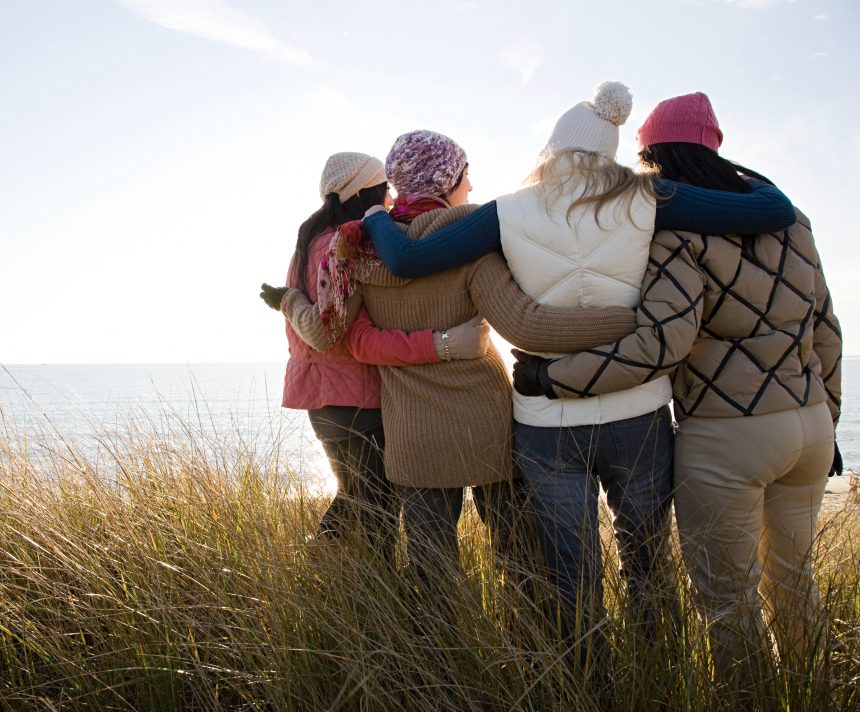Sisters in Christ
Introduction
In March, we celebrate Women’s History Month. There are many notable women in history whose lives of service can inspire us today. As we reflect on the past, let’s carry their examples forward into the future.
Decorations
Decorate in muted shades of brown or achromatic colors. Put up pictures of famous women throughout history who devoted their lives to service.
Meeting Outline
- Opening Prayer
- Quiz: Women who Inspire
- Scripture Reading: Romans 1:17 (theme verse) and 1 Peter 4:9-11
- Devotional Thought: We are Sisters in Christ
- Service Activity
- Closing Prayer
Quiz: Women Who Inspire
- What Methodist woman wrote more hymns than Charles Wesley? A. Frances Willard B. Fanny Crosby C. Frances Alexander (Answer: B)
- Who said, “Peace begins with a smile”? A. Mother Teresa B. Florence Nightingale C. Clara Barton (Answer: A)
- Who was the first woman General of The Salvation Army? A. Catherine Booth B. Eva Burrows C. Evangeline Booth (Answer: C)
- Who gave a famous speech titled “Ain’t I a Woman?” A. Sojourner Truth B. Harriet Beecher Stowe C. Hattie McDaniel (Answer: A)
- What woman was a Quaker minister and also helped to organize the Seneca Falls Convention? A. Susan B. Anthony B. Lucretia Mott C. Nellie McClung (Answer: B)
- Who was the first woman to serve on the United States’ Supreme Court? A. Ruth Bader-Ginsberg B. Gloria Allred C. Sandra Day O’Connor (Answer: C)
- Who was the first African American officer in The Salvation Army of the United States? A. Mabel Broome B. Pearl Beck C. Estava Maughn (Answer: A)
- What woman started the Catholic Worker Movement and opened the first House of Hospitality? A. Mother Cabrini B. Dorothy Day C. Phyllis Bowman (Answer: B)
- Who said, “I am content to fill a little space if God be glorified.”? A. Susanna Wesley B. Phoebe Palmer C. Ann Wilkins (Answer: A)
- Who was the first appointed to oversee the Women’s Social Work (WSW) of The Salvation Army? A. Catherine Mumford B. Eliza Shirley C. Florence Booth (Answer: C)
Service Activities
- Research what domestic violence or human trafficking services exist in your area
- Invite a victims advocate or survivor to speak to your group
- Assemble blessing bags to drop off at your local domestic violence shelter or police station. Include items such as:
- Comb or brush
- Compact mirror
- Toiletry items
- Makeup
- Shampoo/conditioner
- Manicure set
- Prayer card
- Write encouraging cards and send them to your local women’s shelter.
- Go to a women’s shelter and offer to do spa activities together.
We are sisters in Christ
In 1881, a young girl bravely came forward to kneel at the mercy seat of the Whitechapel Corps. This simple act changed not only her story, but also the story of The Salvation Army. Like many at that time, the girl had travelled to the city of London looking for work. After being given a false address, she was lured into life in a brothel. Mrs. Elizabeth Cottrill was the Converts’ Sergeant at the corps that night. After hearing the girl’s story, Mrs. Cottrill was determined not to send her back to the brothel. She graciously opened her own home instead. Three years later, the War Cry reported:
Some years ago, a devoted soldier of the Whitechapel corps became very interested in the poor,
fallen girls who sometimes came to the penitent form there. When she found they often had no home she took them to her own house and, although mother of a large family, shared her food with them, and toiled all her spare time to get them into situations, sometimes walking many miles a day. She would often give them her own clothes in order to start them respectably. The Lord has blessed her efforts, and many of the girls she thus sheltered are today in superior situations, gaining the respect of all around them.
Eventually, a home was rented for the sole purpose of providing for what Victorian England labelled “fallen women.” Florence Booth – the wife of General William Booth’s eldest son, Bramwell, and a young mother at the time – was asked to supervise the work. She was a natural leader and continued to oversee the Women’s Social Work (WSW) of The Salvation Army for the next 28 years. During this time, the work expanded from one rescue home in Whitechapel to 117 homes for women in Britain and around the world.
Service to women is part of what we do in The Salvation Army. Since our beginnings, women like Elizabeth Cottrill and Florence Booth recognized that we are sisters in Christ, and we need to care about each other. They both knew the importance of offering hospitality without complaint (1 Peter 4:9), using their gifts to serve others (1 Peter 4:10), and serving in God’s strength “so that in all things God may be praised through Jesus Christ” (1 Peter 4:11, NIV). Although they didn’t have formal training in social work, they did have confident faith. Their faith empowered them to selflessly serve women who were brokenhearted, downtrodden, and on the margins of society.
Sadly, women continue to be placed in dangerous and desperate situations all too often. From 1994 to 2010, approximately 4 in 5 victims of domestic violence were female. That is the reason why, all around the world, The Salvation Army continues to operate homes for women who are fleeing life-threatening situations. This is the living legacy of the Women’s Social Work started by Elizabeth Cottrill and Florence Booth.

